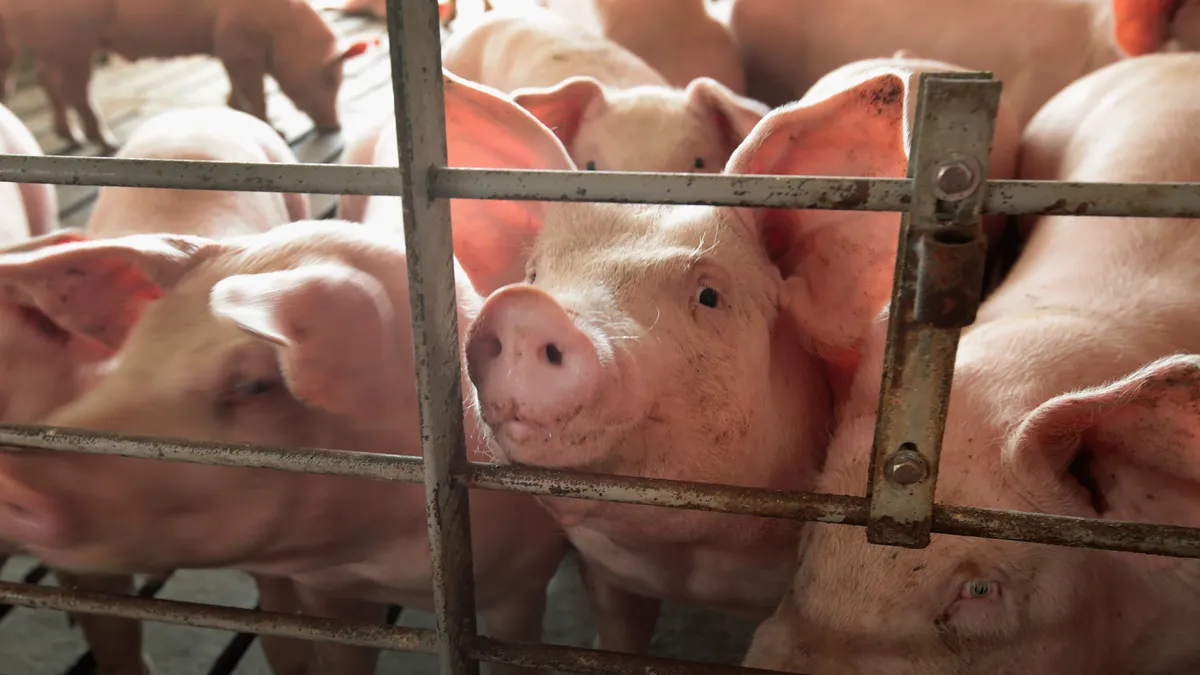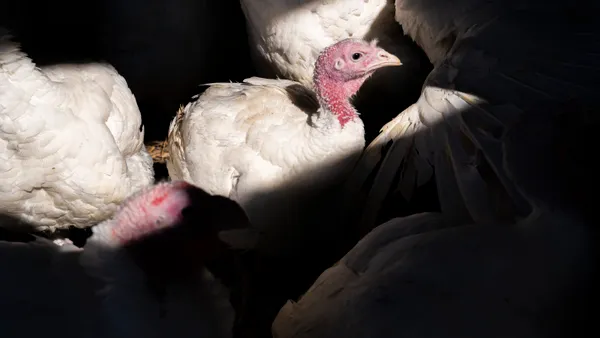Dive Brief:
-
A federal judge this week upheld a voter-approved law in Massachusetts banning pork sales that come from animals raised in tightly confined spaces, rejecting arguments from Triumph Foods and other pork producers who say the rule will threaten farm profitability and raise consumer costs.
-
Honorable William G. Young on Monday rejected arguments from pork producers that the state law is preempted by the Federal Meat Inspection Act, with the judge writing that the federal law governs slaughterhouses, not pig farmers.
-
Young also wrote that the voter-passed law, known as Question 3, does not explicitly require pork companies to change their operations for compliance reasons. Triumph CEO Matt England said he plans to appeal the decision, building on Young’s previous order that found that parts of the law violated federal commerce rules.
Dive Insight:
U.S. producers have raised concerns about Massachusetts' Q3 and California's Proposition 12, both of which ban sales of eggs, veal and pork that come from animals raised in tight quarters. The pork industry has warned the laws will require expensive operations upgrades and unfairly places new restrictions on farmers from outside those two states.
Although the Supreme Court upheld the constitutionality of California's Prop 12 in a high-profile ruling last year, producers have looked for new ways to challenge the decision even as more states pass restrictions on animal confinement. At least 15 states have banned one or more forms of extreme confinement, according to the American Society for the Prevention of Cruelty to Animals.
California’s animal housing law, which took effect this year, has already pushed pork prices higher by more than 40%, according to the U.S. Pork Producers Council. At a time when farmer incomes and pork demand are declining, the industry is lobbying for greater domestic and foreign market certainty.
Triumph CEO England said he plans to appeal the Massachusetts decision with intentions of building on an order from Young that found a previous iteration of Q3 was unconstitutional and in violation of a federal commerce clause. In that ruling, Young ordered the law’s “slaughterhouse exception,” which allows certain processors to directly sell non-compliant pork to consumers, be overturned.
Pork groups are also seeking to undermine animal confinement laws through the upcoming farm bill. House Republicans are pushing a version that prevents states and local governments from imposing housing restrictions unless the animals are physically located within state borders or jurisdictions.
“The industry’s pursuit for relief from these unconstitutional state laws is not over,” England said in an email to Agriculture Dive.











